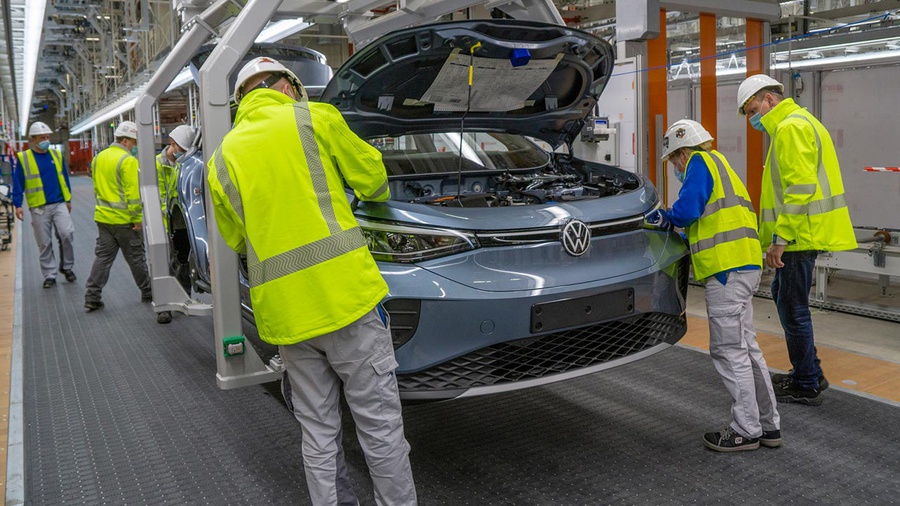Demand is almost 30 per cent below the originally planned production figures, it was said with reference to the works council in an article in the local German publication Nordwest-Zeitung, which has since been confirmed in essence by Volkswagen. In the next two weeks until the plant holidays, the late shift for the production of the ID.4 and the first models of the new ID.7 will be cancelled. The three-week plant holidays are also to be extended by one week for workers in the E-segment. In addition, about 300 of the current 1,500 temporary workers in Emden will not be kept on as of August.
According to the works council, the original plan was to start a third production shift for the E-models in autumn. The staff was informed about the new plans on Monday, the works council said. The suspended late shift and extended plant holidays will only affect the plant’s electric car production; production of the Passat in Emden will continue in the usual pattern.
There is another impact of the reduced production: the official ceremony to mark the start of production of the ID.7 in Emden will be postponed, according to VW. Production of the model has already started on schedule, but a few examples are currently being produced in advance. A new date for the ceremony is not yet known.
The restrictions in production are – obviously – due to low demand. According to Emden works council member Manfred Wulff, customer reticence is being felt “quite vehemently in the electrical world”. There is great uncertainty among customers. And there is also disillusionment among the workforce in the face of the news announced on Monday.
The company itself did not comment on the demand for the individual models, but has high expectations for the premiere of the ID.7. “We are confident that the utilisation of the plant will increase again with the market launch of the ID.7 at the end of the year,” a VW spokesperson told the local German publication Nordwest-Zeitung. Emden is also the only production plant for the ID.7 for the time being.
The situation is different with the ID.4, the MEB SUV is also still built in Zwickau in Europe. In addition, the ID.4s for the US market were initially still built in Germany and exported. However, since ID.4 production has been running at the US plant in Chattanooga, US exports from the German plants have been discontinued. The ID.4 production in Emden has been running since May 2022, the one in Chattanooga since July – so the ID.4 production capacities have been significantly increased within two months. This does not yet include production in China for the local market.
Lower Saxony’s Minister of Economics Olaf Lies (SPD), who also sits on VW’s supervisory board, told the Nordwest-Zeitung that the decision was “understandable” but also a “warning signal for the industry”. “The registration figures for electric cars remain high, but what we are concerned about is the current dip in demand – and not just at Volkswagen, but at all manufacturers,” Lies said, referring to the drop in subsidies. The politician also brought new purchase incentives into play – for example via a reduced value-added tax.
Source: finanznachrichten
.jpg)

